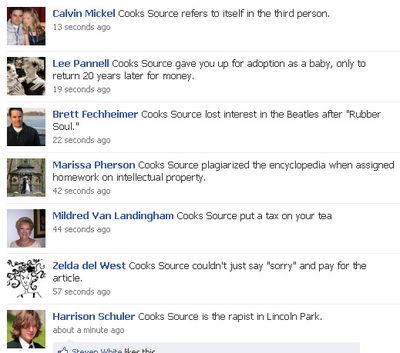Jammie Thomas-Rasset, the Brainerd mother of four, this week lost yet another court battle over whether she committed copyright infringement by distributing 24 songs on the KaZaA peer-to-peer file sharing network. She has to pay $1.5 million. That works out to over $60,000 per song.
How is that computed? TechDirt has the answer today, saying it’s in the instructions to the jury.
Under the Copyright Act, each plaintiff is entitled to a sum of not less than $750 or more than $30,000 per act of infringement (that is, per sound recording downloaded or distributed without license). Because the defendant’s conduct was willful, then each plaintiff is entitled to a sum of up to $150,000 per act of infringement (that is, per sound recording downloaded or distributed without license), as you consider just.
TechDirt says there’s not much a juror could have done:
They’re exactly what the law basically says the judge should say. But, if you’re the average person in the jury box, these instructions effectively say “pick a number higher than $30,000 and less than $150,000.” That’s basically it. The numbers are framed right there, and the jury just has to pick. So, the last two juries picked $80,000 and now $62,500. If you’re on the jury, you’re not really thinking about what this actually means, or if the punishment fits the actions. You’re told, by law, you should pick a ridiculously high number, and then you just sorta pick one within that frame, which has already been set for you.
To many people, Jammie Thomas-Rasset is a hero in efforts to “free” the Internet. But this week, the Internet made a hero out of someone whose situation is more closely aligned, perhaps, to the dastardly recording industry — a woman whose work was stolen via the online route.
Monica Gaudio, of Pennsylvania, found out a magazine, Cooks Source, lifted her online work and published it in the magazine. So Gaudio sent the publisher a note asking for a donation to the Columbia School of Journalism, then got this note in return:
..Honestly Monica, the web is considered “public domain” and you should be happy we just didn’t “lift” your whole article and put someone else’s name on it! It happens a lot, clearly more than you are aware of, especially on college campuses, and the workplace. If you took offence and are unhappy, I am sorry, but you as a professional should know that the article we used written by you was in very bad need of editing, and is much better now than was originally. Now it will work well for your portfolio. For that reason, I have a bit of a difficult time with your requests for monetary gain, albeit for such a fine (and very wealthy!) institution. We put some time into rewrites, you should compensate me! I never charge young writers for advice or rewriting poorly written pieces, and have many who write for me… ALWAYS for free!”
That’s when the Internet went nuts.
The magazine’s Facebook page has been today’s most entertaining read:
Humorous as it is — and it is — the outcry raises a big question: How can two people on opposite sides of a copyright debate, both be Internet heroes?

